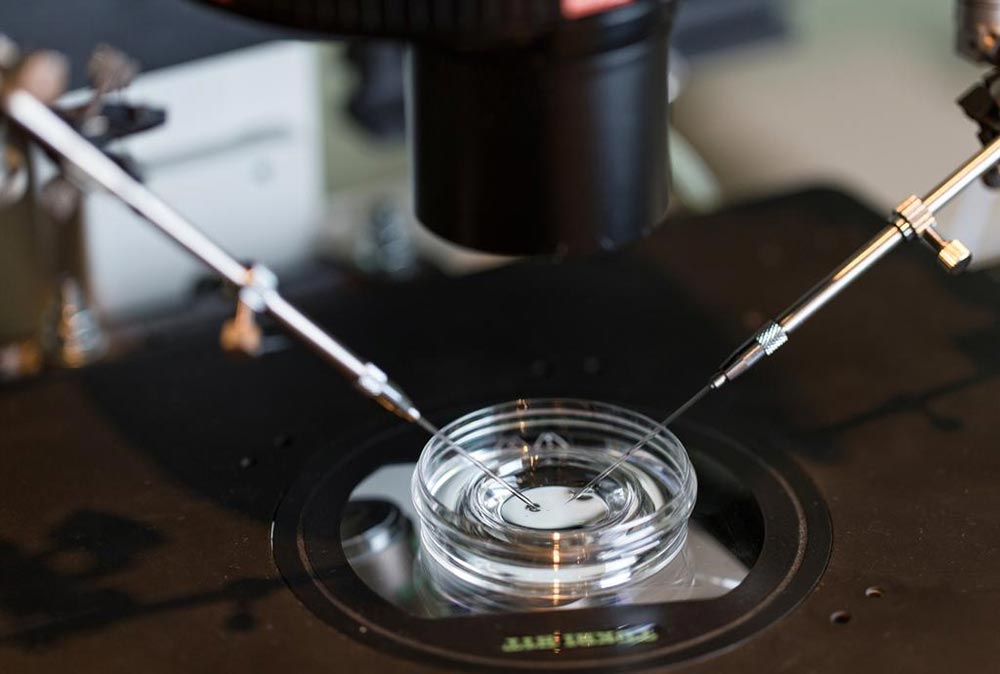In vitro fertilization is considered the most effective yet complex process of helping women with fertility problems in their conception.
It also helps in making sure that genetic problems are prevented in the child.
In an IVF, mature eggs are retrieved from the woman and are fertilized with laboratory-available sperm which could come from a partner or a sperm donor. The embryo, which is a fertilized egg, is then transferred to the woman’s uterus for growth and development.
Unlike artificial insemination – a process that puts the sperm directly in the uterus to aid conception, IVF means combining sperm and egg in a laboratory. In 1987, babies conceived through IVF were once referred to as “test tube babies”, but today, IVF is not as controversial or mysterious as it once was.
Is this procedure for you?
There are actually many factors to consider in determining your chances of conception through IVF:
Age
It is recommended and offered to women under 43 who has done two years of trying to conceive through unprotected sex; or those who have done at least 6 to 12 cycles of artificial insemination.
Cause of infertility
Conditions include endometriosis, low sperm count, problems with the uterus or fallopian tube, problems with ovulation, the sperm’s inability to enter or survive in the cervical mucus, antibody problems that harm the ovum or sperm, poor egg quality, and genetic diseases. These could affect the process of conception.
Time
Initial harvesting of eggs may already take around 30 minutes to an hour
Within the day, the sperm will then be mixed with the egg. Depending on the clinic, eggs will then be under observation for a long period of time, even needing 5 days to reach a more advanced blastocyst stage.
After the procedure, you will be expected to stay in bed for several hours before getting discharged six hours later. This does not include the preliminary tests that check on your egg and your partner’s sperm, and both of your blood tests.
The preliminary medical tests will also require both of you to come back to the clinic 4-5 times to update yourselves on the egg’s maturation. A pregnancy test will then be done after 14 days.
Readiness for invasive procedure – after the procedure, women are then encouraged to have three embryos at a time to increase chances of conception. Even though multiple pregnancies mean increased chances, it also means increased risks for you and your baby.
Finances
In England alone costs already vary, but 1 cycle of treatment may cost up to £5,000 or more.
If you decide it’s for you, here are things you should note:
Bedrest
Though encouraged, is not required. Mild movement and activities actually help increase chances of implantation and with it also, good blood circulation. Any movement that eases the mind of stress is recommended as it helps your overall wellness.
Travel
This is not forbidden, however, you are encouraged to assimilate it well with your clinic schedule for it to feel normal. Seamless integration of your clinic appointments with your schedule helps you focus without restricting yourself from going somewhere fun!
Diet
A sudden shift in diet to lose weight is ineffective. Prior to considering the procedure, IVF clinical trial doctors actually encourage adopting a healthy diet of fruits and nuts (and note that excessive vitamin supplements do not help). Along with having a healthy diet, exercise is highly recommended, as it has been proven that BMI and IVF outcomes are highly correlated.
Smoking and Drinking
Reduced coffee and avoiding alcohol intake and smoking 3 to 6 months prior to conception help increase the chances of success. Men should remember that too much of the aforementioned, along with body-building supplements and drugs, affect sperm count, and even heighten risks of miscarriages. Moderate exercise is recommended and biking should be avoided.
Health care choices: it is really important to choose a laboratory and health care center that you studied and have inquired about. Make sure you find trusted doctors to handle your procedure.
For the past decades, there has been a dramatic increase in infertility problems in both men and women. Though it is not highly attributed by experts to academic and economic changes in lifestyle and environment. These things are considered “most likely” factors that lead women to more delay in childbearing.
As has been already mentioned, age really is the determining factor in child-bearing capacity.
Recent IVF clinical trials give the maximum chance of success at 30-50%, with chances of success of 10-15% per cycle. Even though there are still people who fear IVF or consider it “unnatural”, the number of couples who are trying it has also increased.
If you are set on doing it, please contact your doctor, who could brief you about preparations and potential risks.

